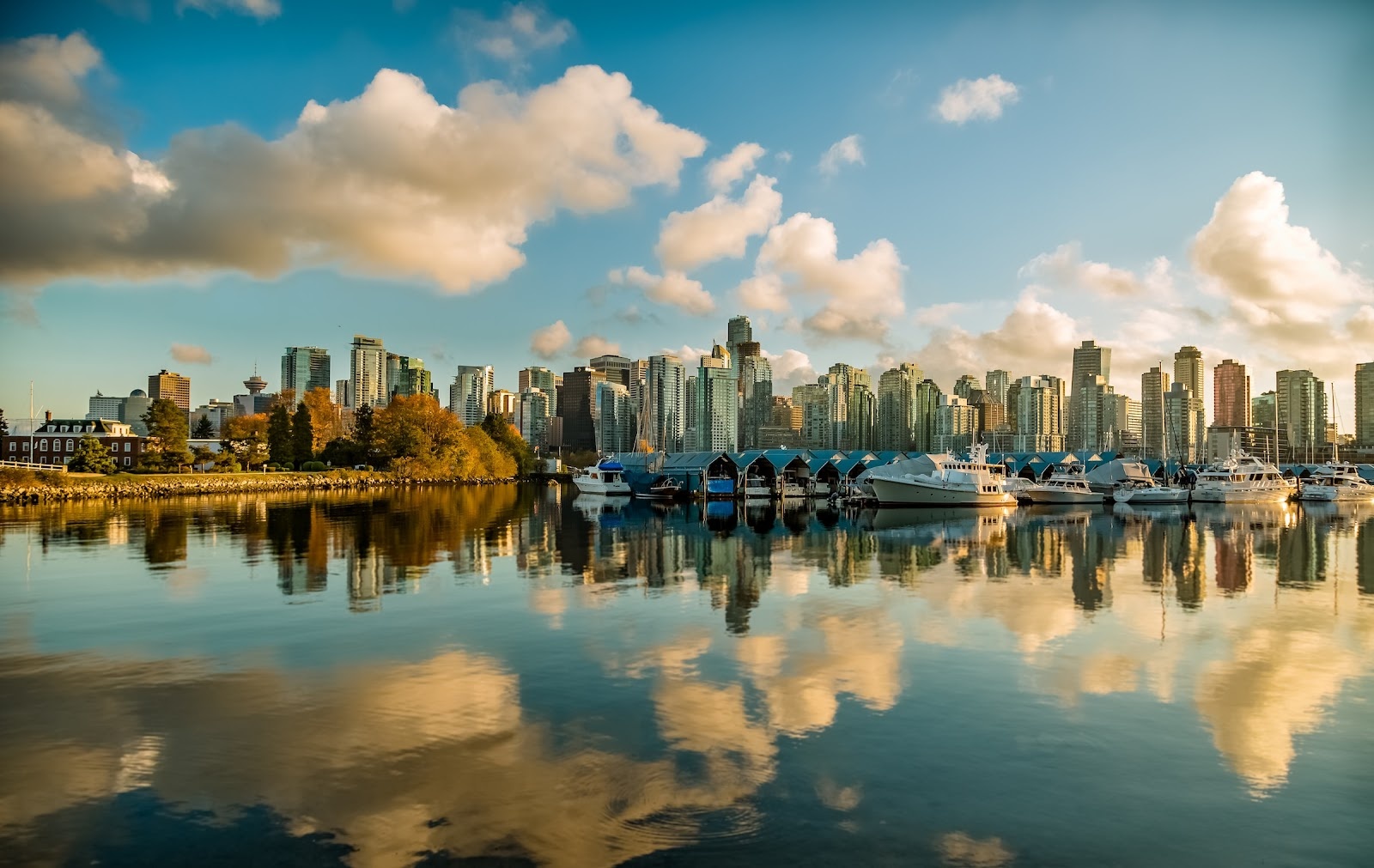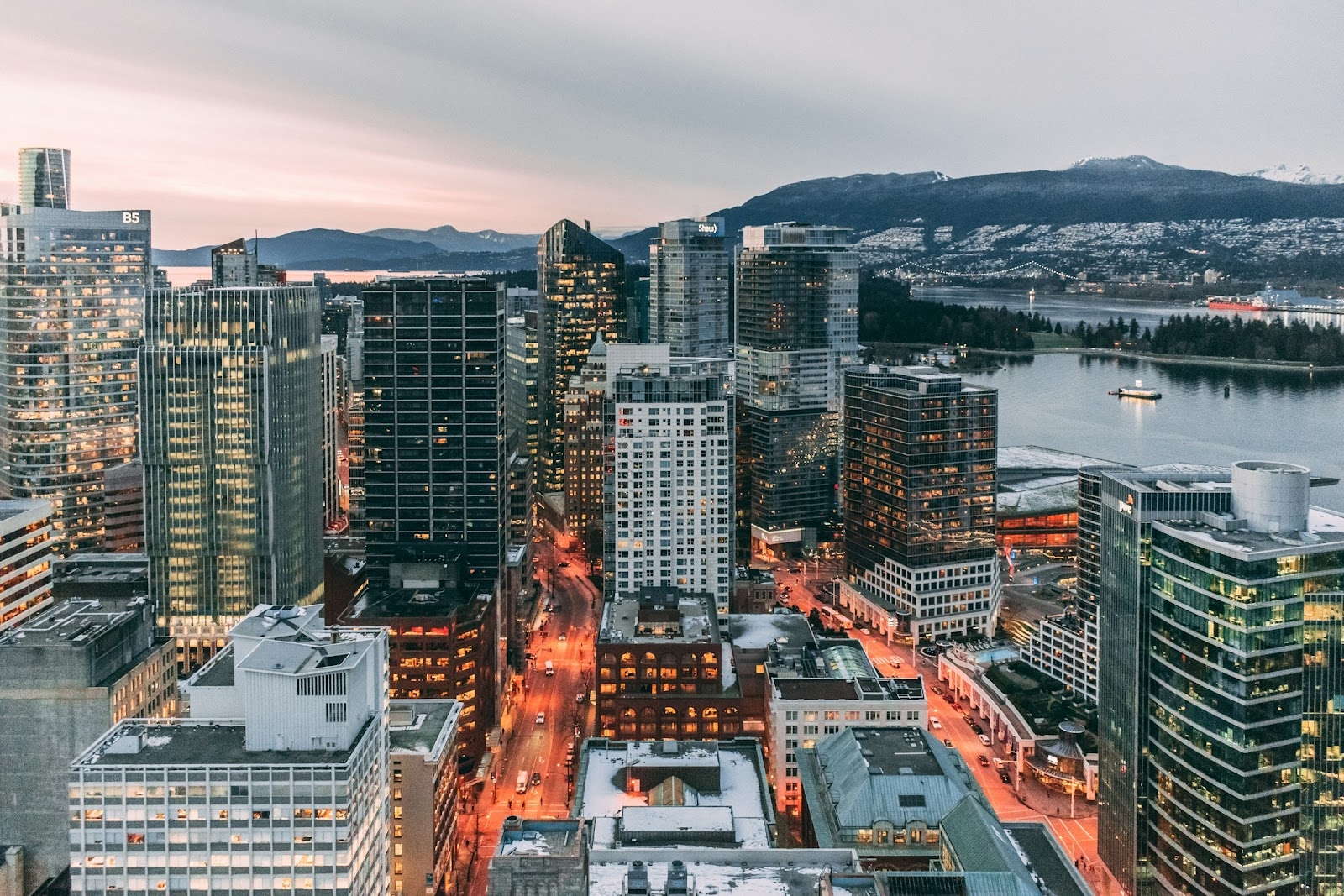Is Vancouver Housing a Bubble?
Vancouver, renowned for its stunning landscapes, vibrant culture, and high quality of life, has also gained notoriety for its soaring real estate prices. As the city continues to lure in residents and investors from around the globe, concerns about the sustainability of its housing market have reached a fever pitch
Today, we're diving into the much-debated topic of Vancouver's housing market to answer the burning question: Is Vancouver housing a bubble?
In this blog, we'll take a comprehensive look at the factors influencing Vancouver's housing market, analyze the indicators of a potential bubble, and explore the varying perspectives on this contentious issue.
So grab your favorite brew and join us as we unravel the intricacies of this city’s housing landscape, with a focus on the market for 2 bedroom homes for sale Vancouver!

Understanding Housing Bubbles
The real estate market has captured the attention of millions worldwide, with the prospect of owning a home being a significant goal for many. However, the housing market is not immune to economic cycles, and one phenomenon that has sparked interest and concern in recent years is the concept of a housing bubble.
A housing bubble refers to a period of speculation in the housing market, characterized by rapidly increasing home prices driven by demand, speculation, and exuberance. This market phenomenon is often fueled by an influx of buyers who believe that they can profit from the increasing value of homes, leading to inflated prices that are not sustainable in the long run.
Characteristics of a Housing Bubble
Several characteristics are often associated with housing bubbles, including rapid increases in home prices, high levels of housing speculation, excessive lending and borrowing practices, and an oversupply of housing as a result of overzealous construction.
Factors Driving Vancouver's Housing Market
Now that you're familiar with the housing bubble, let's explore the primary drivers behind Vancouver's housing market, delving into key economic, social, and regulatory forces that continue to impact the supply and demand dynamics of the region's real estate sector and 2 bedroom homes for sale Vancouver.
Demand-Side Factor
Population Growth
Vancouver has experienced significant population growth over the years, driven by factors such as immigration and interprovincial migration. This influx of people has fueled demand for housing, putting upward pressure on home prices.
Foreign Investment
Foreign investment, particularly from Chinese buyers, has been a significant driving force behind Vancouver's housing market. The city's desirability as an international destination has led to substantial investments in real estate, influencing demand dynamics.
Low Interest Rates
Historically low interest rates have made borrowing more affordable, thereby stimulating demand for housing as buyers take advantage of favorable borrowing conditions.
Supply-Side factors
Limited Land Availability
Vancouver, hemmed in by mountains and water, has limited land available for development, constraining the supply of housing. This scarcity of land has contributed to the upward pressure on home prices.
Development Regulations and Zoning Laws
Stringent development regulations and zoning laws in Vancouver have impacted the pace and scale of new housing construction, further exacerbating the housing supply shortage.
Construction Costs
The high cost of construction, including land acquisition, labour, and materials, has also contributed to the challenges associated with increasing the housing supply to meet demand in Vancouver.
Arguments for Vancouver Housing Being a Bubble
The Vancouver housing market has long been a subject of debate, with many experts and stakeholders weighing in on whether the city's real estate is in the midst of a bubble. On one hand, there are compelling arguments in favour of this view, including rapid price increases, speculative behaviour, high levels of household debt, and market imbalances.
On the other hand, some individuals and authorities argue that the fundamental value of real estate, the strength of the local economy, and government intervention and regulation may counter the notion of a housing bubble.
Let's delve into these arguments to gain a comprehensive understanding of the Vancouver housing market.
Rapid Price Increases
The rapid price increases in the Vancouver housing market have been a cause for concern for many analysts. Over the past few years, property prices have skyrocketed, leading to an environment where owning a home has become increasingly unattainable for many residents. This steep rise in prices has raised red flags and has led many to question the sustainability of this trend.
Speculative Behavior
Speculative behaviour in the housing market has also been a point of contention. Many buyers and investors are entering the market not based on the intrinsic value of the properties, but rather on the expectation of future price increases. This behaviour can create artificial demand, driving prices higher and further distorting the market.
High Levels of Household Debt
High levels of household debt in Vancouver are another aspect contributing to the argument that a housing bubble may be forming. As people take on increasing amounts of debt to purchase overpriced properties, the risk of a widespread financial crisis looms large. If property values were to decline significantly, many homeowners could find themselves underwater on their mortgages, further destabilizing the market.
Market Imbalances
Market imbalances, such as a mismatch between housing supply and demand, also lend credence to the idea of a bubble. The city has been grappling with a shortage of affordable housing, leading to a significant imbalance between the number of people looking for homes and the available supply. This imbalance has contributed to the meteoric rise in prices, potentially setting the stage for a market correction.
Arguments Against Vancouver Housing Being a Bubble
Fundamental Value of Real Estate
Despite these arguments, some factors suggest the Vancouver housing market might not be in a bubble. The fundamental value of real estate, for instance, is a point often raised by proponents of this view. They argue that Vancouver's desirability as a place to live and invest, combined with limited land for development, underpins the high 2 bedrooms homes for sale Vancouver prices.
Strong Local Economy
The strength of the local economy is also cited as a reason to believe that the current housing market conditions are not indicative of a bubble. Vancouver boasts a diverse and robust economy, with sectors such as technology, natural resources, and international trade driving growth. This economic strength provides a solid foundation for the real estate market, potentially mitigating the risk of a sudden collapse.
Government Intervention and Regulation
Additionally, government intervention and regulation are crucial in shaping the housing market. Authorities have implemented measures aimed at cooling the market, such as foreign buyer taxes, vacancy taxes, and stricter mortgage regulations. These interventions are designed to stabilize the housing market and prevent the formation of a speculative bubble, suggesting that the risks may be mitigated by proactive government action.
The Potential Impacts of a Housing Bubble Burst in Vancouver
Now what could happen if Vancouver’s housing was indeed a bubble and were to burst? Here, we'll explore the potential impacts of such an event and what it could mean for the city and its residents.

Economic Consequences
The bursting of a housing bubble can have significant economic ramifications. Property values could plummet, resulting in a decline in household wealth and consumer spending. This, in turn, could reduce construction activity and related industries, impacting local employment and economic growth.
Moreover, a drop in property values could also lead to an increase in mortgage defaults, putting a strain on the financial sector. For those in the market for 2 bedroom homes for sale Vancouver, a burst housing bubble could lead to increased affordability in the short term but potentially unstable property values in the long run.
Social and Demographic Effects
Housing is a fundamental aspect of people's lives, and any disruption in the housing market can have substantial social and demographic effects. A housing bubble burst may lead to an increase in foreclosures and housing insecurity, pushing some residents out of their homes and neighborhoods.
This could result in a shift in community dynamics and a potential increase in homelessness. Families and individuals looking for 2 bedroom homes for sale Vancouver may find themselves facing an uncertain market with rapid changes in availability and pricing, potentially impacting their long-term housing plans.
Policy Implications
The bursting of a housing bubble would necessitate careful policy considerations from governmental and regulatory bodies. Measures may need to be put in place to stabilize the housing market and prevent widespread economic turmoil. This could involve interventions to support homeowners facing foreclosure, as well as strategies to mitigate the ripple effects on the broader economy. Policies aimed at increasing housing supply and affordability, especially for 2 bedroom homes for sale Vancouver, may become a priority to restore stability and confidence in the market.
Final Thoughts
Whether the Vancouver housing market is in a bubble remains a hot topic of debate. While some argue that the rapidly escalating prices and speculative investing indicate a bubble, others point to underlying factors such as strong demand, limited supply, and population growth as reasons for the high prices.
The situation is complex and multifaceted, making it challenging to provide a definitive answer. The best course of action for anyone interested in the 2 bedrooms homes for sale Vancouver and the housing market is to stay informed, consider various perspectives, and make decisions based on solid research and professional advice.
Only time will tell whether the housing market in Vancouver is experiencing a bubble or if it is a reflection of ongoing economic and demographic trends.
